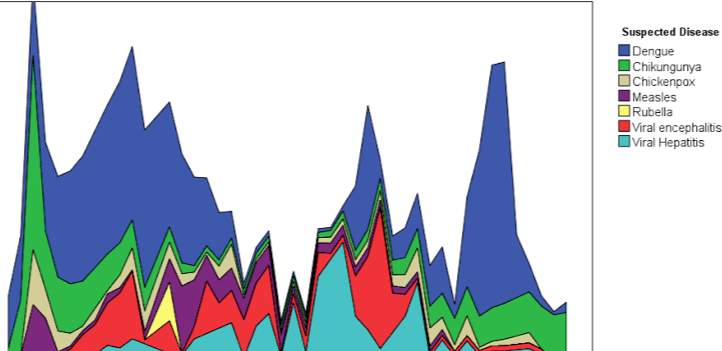Odisha commits to eliminate Neglected Tropical Diseases
India joins the World NTD Day movement to reiterateits commitment towards elimination of NTDs.
Odisha News Today Bureau:
World Neglected Tropical Diseases (NTD) Day, which is being observed today across India, is a key moment in the fight against NTDs, a group of preventable diseasesinclude Lymphatic Filariasis (Hathipaon), Visceral Leishmaniasis (Kala-Azar), leprosy (Kusht-Rog), dengue, chikungunya, snakebite, rabies etc.that are responsible for killing and disabling millions of people in India every year.
Now, as India takes a stand against NTDs in alignment with the WHO NTD Roadmap 2021-2030, Odisha has reiterated its commitment to ensuring that India’s NTD elimination goals are met. Speaking about the state’s determination to address the challenge of NTDs, State Programme officer (Vector Bone Diseases) said “we remain committed to ensuring India meets its NTD elimination target much before 2030”. In view of elimination drive we will be doing mass drug administration activities in 17 filaria endemic districts in two phases in February 2021. In the first phase 8 districts namely Balasore, Bhadrak, Cuttack, Dhenkanal, Jharsuguda, Nuapada, Khurda&Nayagarh will do MDA along with NDD in February 10th 2021 and the rest 9 districts namely Ganjam, Angul, Bargarh, Keonjhar, Kandhamal, Mayurbhanj, Sonepur, Sundergarh and Sambalpur will do MDA in the second batch in last week of February 2021”
Prevention and control of endemic NTDs is being prioritised through national disease control programmes for Lymphatic Filariasis, Visceral Leishmaniasis, Leprosy, Rabies, Soil transmitted Helminthiasis and Dengue which have globally aligned strategies and dedicated annual financial outlay. Significant progress has been made towards achieving the elimination targets for Visceral Leishmaniasis (Kala-azar) and Lymphatic Filariasis (LF) in India. India has successfully reduced Visceral Leishmaniasis as 97% of endemic blocks have achieved the target of elimination (less than 1 case of VL per 10,000 population).
Of the LF endemic districts, 98 out of 272 have been validated for interruption of transmission (TAS-1) and have successfully stopped MDA. Dengue remains a challenge due to its rapid geographical spread, but India is sustaining the case fatality rate at less than 1% since 2008. Service delivery for all diseases including NTDs is through the agency of public health systems. Platforms are being created for Filaria, Visceral Leishmaniasis, Soil transmitted helminthiasis and leprosy to harmonize elimination efforts in case finding, vector control, mass drug administration etc. wherever possible. Intersectoral coordination for vector control are being strengthened such that gains made for dengue, filaria and VL individually, reap collateral benefits for each other.
In Odisha NTDs LF / dengue pose a significant public health challenge. However, the state has been taking concrete steps against these diseases. While COVID-19diverted resources and attention away from other critical health issues like NTDs, Odisha was quick in resuming NTD related activities in alignment with the WHO’s guidance. Speaking about the state’s efforts against NTDs State Programme Officer (VBD) said state is all prepared for the ensuing MDA programme in February 2021 to combat flariasis. Morbidity management clinics will be openedat high endemic sub centers for providing demonstration to the affected how to self care”. We are confident that our efforts will pave the way for building an NTD-free generation in India.
In the lead up to and during World NTD Day, several awareness activities were held in the state to raise awareness about NTDs including dissemination of awareness messages through social and print media.

